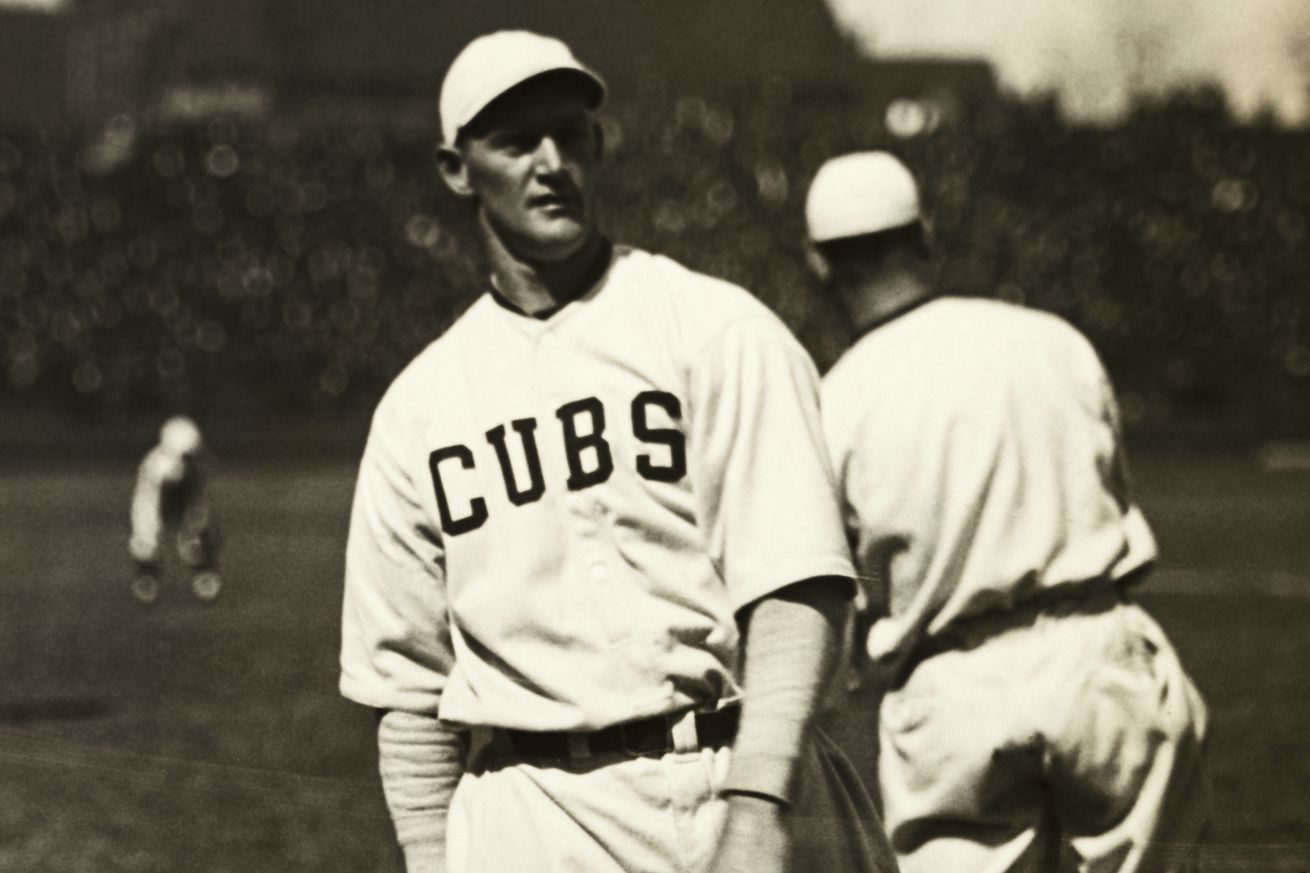
The Cubs won the NL pennant in this abbreviated season.
The Cubs got off to a fantastic start in 1918, at one point going on a 25-7 run. By June 29 they were 42-17 and well-established in first place. When the season ended early due to World War I, the Cubs were 84-45 and ahead by 10½ games. They flopped in the World Series, but the .651 winning percentage is their best since 1910. Even the 2016 World Series champions fell a bit short of that, finishing at .640.
As such, this team didn’t need to make many deals during the year, and given the war footing the country was on, that’s not surprising. I have just two transactions to share with you.
January 4: Acquired Lefty Tyler from the Braves for Larry Doyle, Art Wilson and $15,000
That was a tremendous amount of money in 1918, equivalent to about $340,000 today, especially in a time when the average American worker made about $1,200 per year.
Tyler was an established starter who’d done quite well with the Braves for eight seasons, and in fact, had an outstanding year in 1918, going 19-8 with a 2.00 ERA and 1.058 WHIP. Retroactively, that was worth 6.9 bWAR. Only Tyler’s teammate Jim “Hippo” Vaughn did better among NL pitchers. Cy Young had only been retired for seven years back then, but it’s pretty certain that one of those Cubs would have won the award named after Young had it existed in 1918.
The Cubs probably don’t win the pennant without Tyler.
The Cubs had acquired Doyle from the Giants a couple years earlier, after he had been league MVP in 1912 and played in three World Series for them. Per Doyle’s SABR biography, he’s responsible for this famous quote:
“It’s great to be young and a New York Giant,” he famously remarked to Damon Runyon in 1911, when he helped his team to its first of three consecutive NL pennants.
Just four days after this deal, the Braves sent Doyle back to the Giants for Buck Herzog, who would later play for the Cubs.
Wilson, a catcher, had a couple of decent seasons for the Braves, but overall this trade was a huge win for the Cubs. After their 1914 “miracle” pennant, the Braves slid into mediocrity for decades, not winning another pennant until 1948, losing 100 or more games five times in that span. It’s trades like this that helped that slide along.
August 2: Acquired Charlie Pick from San Francisco (Pacific Coast League) for $5,000
Pick, an infielder (mostly, he also played some outfield), batted .263/.325/.335 with 24 stolen bases in 104 games for the Cubs in 1918 and 1919, after which he was traded to the Braves.
His claim to fame as a Cub was that, even though the Cubs lost the World Series in 1918, it wasn’t Pick’s fault — he went 7-for-18 (.389) with a double and a stolen base in the six-game series.
Give these transactions an “A”.
